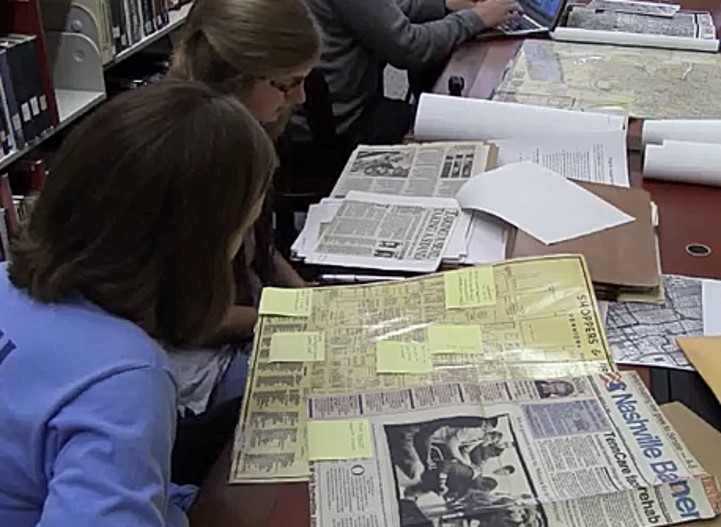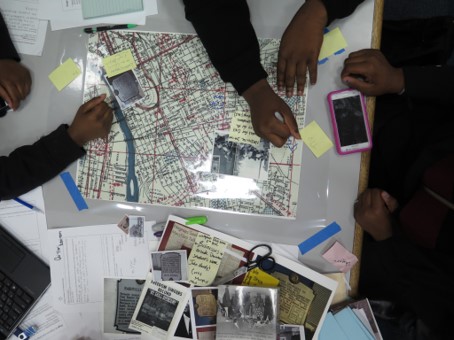Setting: Classroom or archive space
Estimated time: 90+ minutes
Resources needed: Collections of archival material (e.g. newspapers, images, oral histories, maps, books, videos, songs etc.), a sorting or finding aid which indexes materials, laptops/computers, note-taking materials e.g. post-it notes.
Organization: Participants work in small groups (between 3 and 6)
Purpose: Teams to research and develop a theme for their map-based story line, and to develop historical inquiry skills working with primary source documents.


Activity structure: This activity works best if it is run in collaboration with librarians and/or archivists as it provides an opportunity for participants to engage with the organization and metadata structures in archive collections. Librarians are also able to source and prepare collections of resources ahead of the session, making the participants research time more efficient.
Groups will use their time with the archival materials to develop a thesis or pitch for their historical map-based story line. To aid participants in finding information, facilitators may choose to provide groups with pre-curated ‘sandboxes’ of materials organized around a theme, e.g. music, religion, a particular person, event or location.
Depending on the age of participants, and the availability of different types of media, facilitators may choose to set guidelines for the number of items groups are required to use in their story line. For example, groups could be asked to select one oral history, 3 photographs, one newspaper article and a piece of music to include in their story line.
To maintain focus during the task, facilitators may ask groups to share their developing ideas and put together a ‘pitch’ for their proposed story line. These can be shared with their peers and adults who may suggest additional resources or avenues they could explore.
A further suggestion to involve all group members is to allocate specific research roles. These could include:
•lead archivist who delegates resources to team members
•mapper who locates selected materials onto the base map
•audio researcher who focuses specifically on music and oral history items
•cataloger who is responsible for recording which archival materials are selected for use and noting the metadata associated with the resource (date, location, type of media, people featured etc.)